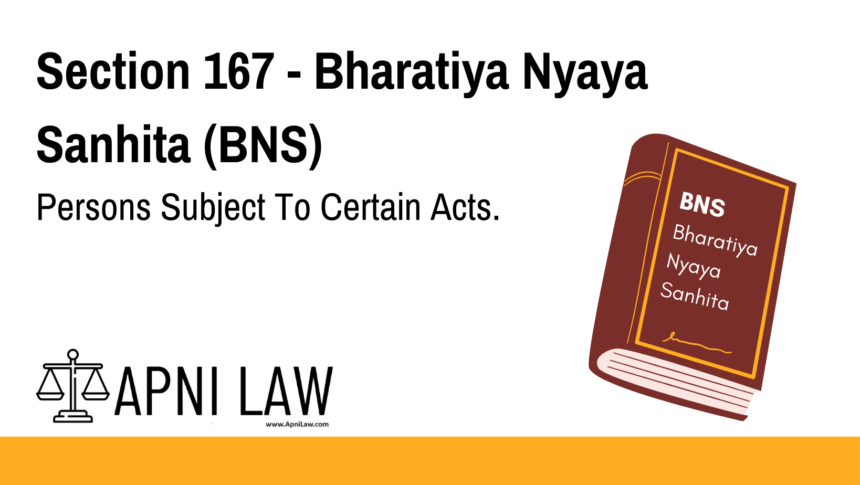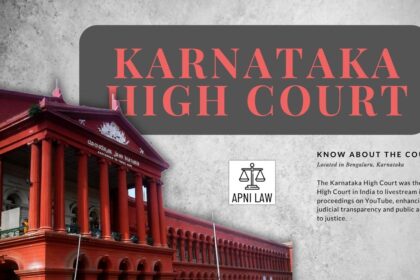Section 167 – Bharatiya Nyaya Sanhita (BNS) – Persons Subject to Certain Acts
Code: Section 167 BNS
No person subject to the Air Force Act, 1950, the Army Act, 1950 and the Navy
Act, 1957, or shall be subject to punishment under this Sanhita for any of the offences
defined in this Chapter.
Explanation of Section 167 BNS
1. Purpose of Section 167 BNS
This section establishes that personnel governed by special military laws—such as the Air Force Act, Army Act, and Navy Act—cannot be punished under the BNS for offences related to military discipline.
2. Why is This Provision Important?
- Prevents Overlapping Jurisdiction: Military personnel are already governed by separate military laws.
- Ensures Military Discipline: Courts-martial handle military offenses, maintaining a separate justice system.
- Avoids Conflicting Punishments: Without this section, BNS and military laws could create contradictions.
3. Who Does This Section Apply To?
This section applies to officers and enlisted personnel of:
- Indian Army (under the Army Act, 1950).
- Indian Navy (under the Navy Act, 1957).
- Indian Air Force (under the Air Force Act, 1950).
Illustration
Example 1: A Soldier Commits Insubordination
A soldier disobeys a direct order from his commanding officer. Even though this could be insubordination under BNS Section 166, the soldier will not be tried under BNS but under the Army Act, 1950.
Example 2: A Navy Officer Engages in Desertion
A naval officer abandons his post without authorization. While desertion is a crime under BNS Section 163, the officer will be prosecuted under the Navy Act, 1957, not under the BNS.
Example 3: An Airman Assaults a Superior Officer
An airman physically assaults his commanding officer. While assaulting a superior is an offense under BNS Section 161, he will be tried under the Air Force Act, 1950.
Common Questions and Answers on Section 167 BNS
1. Why are military personnel exempt from BNS provisions?
Military laws like the Army Act, Navy Act, and Air Force Act already cover disciplinary and criminal actions for soldiers, sailors, and airmen.
2. Can a military officer ever be tried under BNS?
Yes, but only for crimes that are not related to military duties—such as murder, theft, or fraud committed outside military service.
3. What happens if a military person commits a civil offense?
- If the crime is purely military-related, the respective military court will handle the case.
- If it involves a civilian or a non-military setting, the civilian courts may have jurisdiction.
4. Can a soldier be punished under both military law and BNS?
No, double jeopardy is not allowed. If a soldier is tried under military law, they cannot be punished again under BNS for the same act.
5. What if a retired military person commits an offense?
Once retired, former military personnel are no longer governed by military laws. If they commit a crime, they will be prosecuted under BNS like any other civilian.
Conclusion
Section 167 BNS ensures that military personnel remain governed by their respective military laws, preventing legal conflicts and jurisdictional overlaps. It helps maintain military discipline while ensuring that military justice systems handle service-related offenses.
For more legal insights, visit ApniLaw today! 🚀








